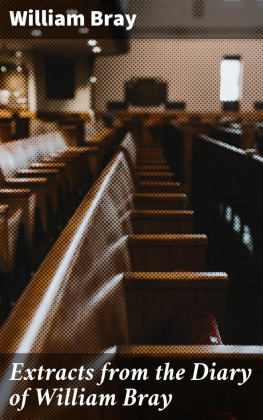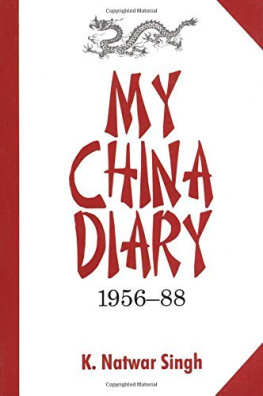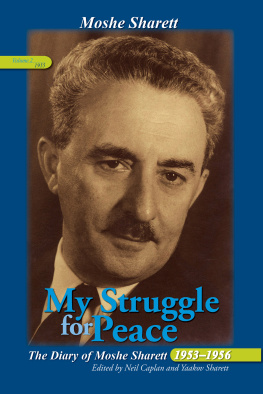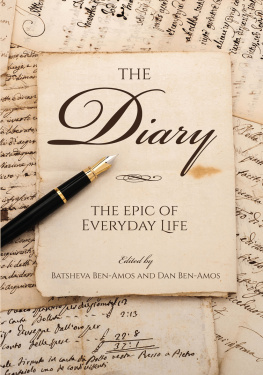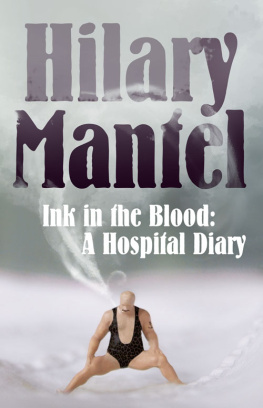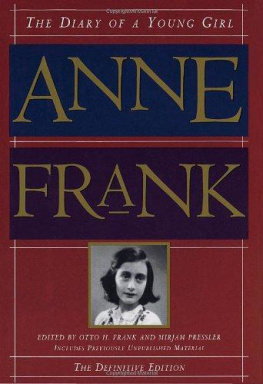AFRICAN ETHNOGRAPHIC STUDIES
OF THE 20TH CENTURY
Volume 25
EFIK TRADERS OF OLD CALABAR
EFIK TRADERS OF OLD CALABAR
Containing
the Diary of Antera Duke
together with
an Ethnographic Sketch and Notes
and an Essay on
the Political Organization of Old Calabar
Edited by
DARYLL FORDE
First published in 1956 by Oxford University Press for the International African Institute.
This edition first published in 2018
by Routledge
2 Park Square, Milton Park, Abingdon, Oxon OX14 4RN
and by Routledge
711 Third Avenue, New York, NY 10017
Routledge is an imprint of the Taylor & Francis Group, an informa business
1956 International African Institute
All rights reserved. No part of this book may be reprinted or reproduced or utilised in any form or by any electronic, mechanical, or other means, now known or hereafter invented, including photocopying and recording, or in any information storage or retrieval system, without permission in writing from the publishers.
Trademark notice: Product or corporate names may be trademarks or registered trademarks, and are used only for identification and explanation without intent to infringe.
British Library Cataloguing in Publication Data
A catalogue record for this book is available from the British Library
ISBN: 978-0-8153-8713-8 (Set)
ISBN: 978-0-429-48813-9 (Set) (ebk)
ISBN: 978-1-138-58638-3 (Volume 25) (hbk)
ISBN: 978-0-429-50428-0 (Volume 25) (ebk)
Publishers Note
The publisher has gone to great lengths to ensure the quality of this reprint but points out that some imperfections in the original copies may be apparent.
Disclaimer
The publisher has made every effort to trace copyright holders and would welcome correspondence from those they have been unable to trace.
EFIK TRADERS OF
OLD CALABAR
Edited by DARYLL FORDE
Containing
THE DIARY OF ANTERA DUKE
an Efik Slave-Trading Chief of
the eighteenth century
together with
AN ETHNOGRAPHIC SKETCH
AND NOTES
by D. SIMMONS
and an Essay on
THE POLITICAL ORGANIZATION OF
OLD CALABAR
by G. I. JONES
Published for the
INTERNATIONAL AFRICAN INSTITUTE
by the
OXFORD UNIVERSITY PRESS
LONDON NEW YORK TORONTO
1956
CONTENTS
Oxford University Press, Amen House, London E.C.4
GLASGOW NEW YORK TORONTO MELBOURNE WELLINGTON
BOMBAY CALCUTTA MADRAS KARACHI CAPETOWN IBADAN
PRINTED IN GREAT BRITAIN
T HE Efik of Old Calabar, on the Cross River estuary in what is now the Calabar Province of Nigeria, were famous in the eighteenth and nineteenth centuries among the trading peoples of the Oil Rivers of West Africa. This stretch of the West African coast, which included the Niger Delta and the estuary of the Cross and Calabar rivers, took its name from the trade in palm-oil which developed in place of the notorious slave-trade that was gradually suppressed by the British in the first half of the nineteenth century. The main rivers and the innumerable creeks here provided a network of waterways into the interior, which the slave-raiders and oil traders commanded with their fleets of large canoes. From their coastal settlements these African traders dealt with their European counterparts who lived in their ships that were moored close by. In return for slaves and oil they obtained supplies of European goods, and not least the firearms which enabled them to dominate the hinterland. The wealth and power to which this gave rise led to the growth of considerable communities and of miniature but fiercely competitive trading empires in such centres as Bonny, Brass and later Opobo, on the Niger Delta, and in Old Calabar.
The Efik, originally a small branch of the Ibibio-speaking peoples who had moved south-east to waterside settlements on the Cross River estuary where they lived mainly as fishermen, had found their opportunity in the slave-trade. Their communities grew and multiplied during the seventeenth and eighteenth centuries with the success of this traffic. Some outstanding features of their life have long been known from the vivid accounts of events and customs written by early European travellers and traders and later by the British Consuls and the missionaries. These have described the wealth, prestige and pomp of the houses of successful trader-chiefs and the remarkable power of the Egbo Societya graded association of freemen which controlled and was controlled by the wealthy leaders of the Efik towns.
In their relations with the European traders, who were for the most part fleeting visitors with neither the interest nor the training to learn an African language, the Efik soon appreciated the importance of acquiring a trade language in which to carry out their transactions. Thus at Old Calabar, and in the other trading centres of the Oil Rivers, there developed, through intercourse with the English traders and seamen, a jargon which was mainly English in vocabulary although the constructions were often modelled on those of Ibibio. Europeans adopted it in their dealings with Africans and it was carried from place to place on the West Coast where it merged with other jargons, similarly developed, to become in the eighteenth century a fairly standardized pidgin English.
The value of written records, especially of transactions, was also recognized by the Efik traders, and some of them were effectively instructed in writing by Englishmen from the ships. Several published narratives of the early nineteenth century refer to the keeping of accounts and journals by the leading Efik at this time. Adams quoted passages from a manuscript written by a leading chief, Eyo Honesty, at the beginning of the nineteenth century. It was, moreover, at the request of Efik notables, largely on account of their desire for schooling, that the Church of Scotland Mission arrived at Calabar in the forties of last century.
Unfortunately, few, if any, of these early Efik documents appear to have survived or to have been closely studied. It was, therefore, with great interest that we learnt of the preservation of part of a diary written at Calabar in the late eighteenth century by Antera Duke, a leading trader and senior member of Egbo. This has afforded an opportunity, not merely to publish an important document concerning the history of Old Calabar, but also to provide an ethnographic background and a sociological interpretation for this and other early-writings on the Efik.
Antera Dukes diary was brought to the notice of the Institute by the Rev. Dr. A. W. Wilkie, C.B.E., formerly of the Church of Scotland Mission, Calabar. The original text, consisting of daily entries for the years 1785 to 1788, was written in Antera Dukes own hand in a large folio volumesuch as might have been used as a ships log-bookwhich had, apparently, been given to him by one of the officers of a slave-ship anchored off Duke Town, Calabar. The volume was brought to Scotland some time during the nineteenth century by a missionary from Calabar and deposited in the library of the United Presbyterian Church offices in Edinburgh. After the union of this Church with the Free Church of Scotland, the library was transferred to new offices in George Street, Edinburgh, and placed under the care of the late Mr. William Valentine, at that time a senior clerk in the Foreign Mission Offices of the Church and later Assistant Foreign Mission Secretary. Mr. Valentine discovered the diary and showed it to Dr. Wilkie who immediately recognized its great historical interest. Having read the whole diary with careand some difficulty, for discoloration of the paper and fading of the ink made portions of it hard to decipherDr. Wilkie made a number of lengthy extracts from it before returning the volume. During the war the offices of the United Church of Scotland suffered bombing and, though measures had been taken to store books and records in safety, some of theseincluding, it is feared, Antera Dukes diarywere unfortunately destroyed. The extracts made and preserved by Dr. Wilkie, are, therefore, all that remains of a fascinating personal record, which is also a unique and valuable source of information on the social life and customs of the Efik people and their relations with European traders nearly 200 years ago.


